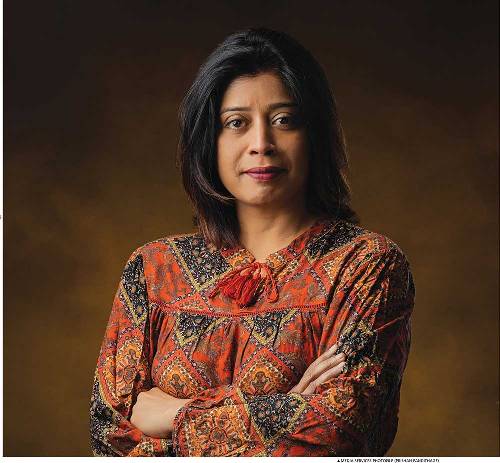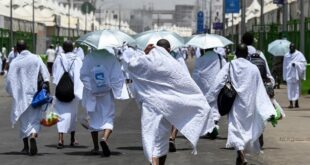The contemporary resurgence of Islam and the growth of Islam in the West together have profound implications for what being a Muslim means today. The resurgence of Islam is essentially a search for authenticity, an attempt to reconstruct the Islamic identity within the contemporary context. And that contemporary context remains within the purview of Western influence.
Muslim intellectuals and thinkers have had to contend with the power of the West and the power of Western ideas while interpreting and understanding the condition of the Muslim Ummah, or community. Many of them openly admired the West for its achievements in the arena of civil society as well as in science and technology, and have even remarked that the West was “Islam without Muslims.” For them the West was indeed worthy of emulation in many areas, such as democracy, human rights, respect for the rule of law and dedication to science.
Other Muslim thinkers have found the West responsible for the moral and material decline of the Muslim world. They blame Western imperialism and the era of colonial domination for the present backwardness and lack of self-government in the Ummah. They imagine it as the embodiment of Satan and have postulated Islamization as complete rejection of all that they see as Western, including democracy and freedom of speech. These thinkers are widely represented as Islamic fundamentalists in the West and often contrasted with Islamic liberals.
Needless to say, both discourses have an element of truth in them, but both suffer from a lack of balance. While the former suffers from a lack of self-esteem and exaggerates the virtues of the West, the latter confuses polemics and diatribe against the West for Islam. Both elements are to some extent valid, and even necessary, but only as supplements to a dominant discourse which is both balanced and constructive.
The West is essentially like a Centaur—half-human and half-beast. The human face of the beast allows the West to appreciate the virtues of democracy, equality and freedoms of speech and religion. It provides the moral basis for protecting and treating its own citizens with utmost respect and dignity while also striving hard to advance their interests, understood in terms of political and material development.
The bestial dimension of the West has led it to commit huge crimes against humanity. The world wars, the holocaust, colonialism, imperialism, slavery and racism are just a few of the crimes that the West has and/or to a much lesser extent continues to commit outside its borders.
We must not reject democracy, human rights and the rule of law.
These elements of the West are puzzling. How can a society that has so much respect for human life at home be so determined to allow the steady elimination of innocent Iraqis? How can a society that stands for equality and democracy allow so little freedom to other societies to disagree with it?
Today in an era of globalization all civilizations are forced to live in intimacy. Moreover, millions of Muslims now live in the West and many others live in a close embrace of Western ways of life. Understanding the puzzle that is the modern West is essential because its enormous power, both material as well as cultural has attained hegemonic proportions. There is very little resistance, except from some Islamists and some Asianists, to the growing influence of the West on the cultural and moral fabric of this planet.
We not only have to understand the modern West in a more balanced way, but we must also develop a discourse for the reconstruction of an Islamic identity neither weakened nor distracted by the enormous shadow of the West. Until we as Muslims can go beyond blind imitation of the West or outright rejection of its values, we will not be able to construct an Islamic self independent of Western influence. It is essential that we develop a positive and constructive understanding of the “other.” Only through such a positive and creative act will we be able to reconstruct a vibrant and meaningful self.
It is therefore doubly important that Muslims in the West develop a “first hand” understanding of what the West really is. It is rather ridiculous that Muslims who have been living in the U.S. for decades put aside their own experiences and, in order to understand the West, turn to the polemics of Muslim intellectuals of the 1960s who have not experienced the contemporary West.
Only those who have had a sustained experience of the West and have witnessed both its human and its bestial dimensions can develop a meaningful understanding of it. Others will continue to rely on caricatures, one way or the other.
A Balanced View
What does it mean to have a balanced view of the West? It means that we do not throw the baby out with the bathwater. Because Muslims are upset that the U.S. has chosen to be friends with Israel and not with the Arabs, or because the U.S. has committed crimes against Iraqi children, we must not reject democracy, human rights, respect for freedom and the rule of law.
A balanced view of the West should recognize the material impulses that shape many Western foreign policy choices and resist as well as condemn them. But in an endeavor to resist the Western domination we must not foolishly reject the laudable results of their moral impulses manifest so elegantly in their self-governing, rights-respecting societies.
A balanced view of the West will rise far above simple associations. Because democracy is found in the West does not mean it should be labeled Western. Since we now can find Islam in the West as well, does that mean Islam, too, is Western? A unbiased analysis of the West will seek to understand the sources of Western values and also their implications for social welfare before passing judgment upon them. A balanced view of the West, then, is essentially a considered and enlightened opinion of Western institutions and practices that does not allow negative emotions to cloud one’s rational faculties.
Only when such an attempt to understand the West is made by Muslim intellectuals as well as the general public will the basis of a healthy Islamic identity emerge. Until then reactions to the West will continue to subvert the construction of Islamic identity. And the responsibility of advancing such an understanding is the communal obligation of the Muslims of America.
Dr. Muqtedar Khan is assistant professor of international relations at Adrian College in Michigan.
Post Disclaimer | Support Us
Support Us
The sailanmuslim.com web site entirely supported by individual donors and well wishers. If you regularly visit this site and wish to show your appreciation, or if you wish to see further development of sailanmuslim.com, please donate us
IMPORTANT : All content hosted on sailanmuslim.com is solely for non-commercial purposes and with the permission of original copyright holders. Any other use of the hosted content, such as for financial gain, requires express approval from the copyright owners.
 Sri lanka Muslims Web Portal Sri Lanka Muslims News Center
Sri lanka Muslims Web Portal Sri Lanka Muslims News Center
 Donate
Donate


